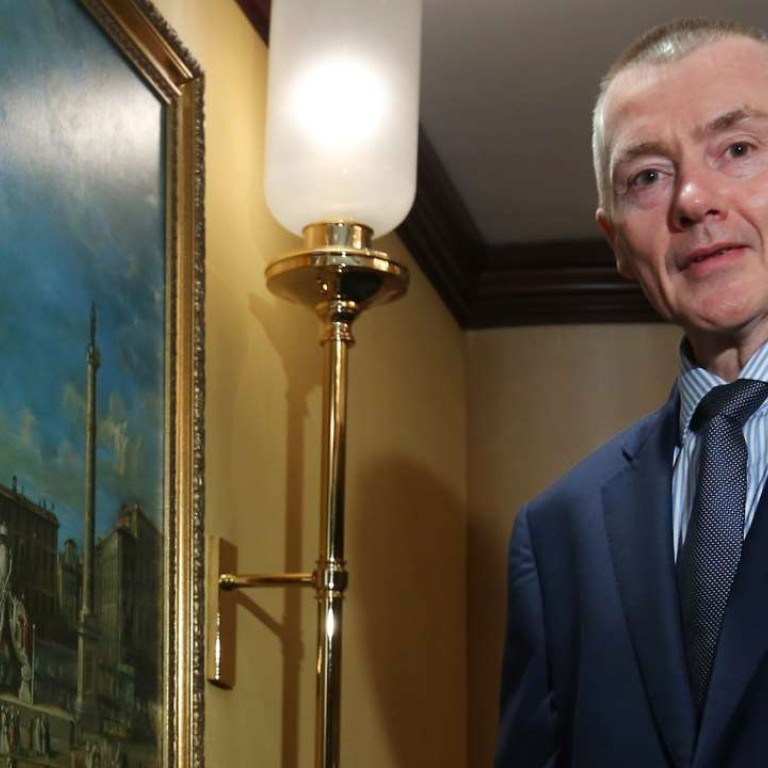
Exclusive | IAG boss fires salvo at pre-funding of Hong Kong’s third runway
Willie Walsh, chief executive of International Airlines Group (IAG) and a staunch opponent of London Heathrow airport’s proposed third runway, said Hong Kong’s third runway should not be pre-funded.
The boss of the parent group of British Airways told the South China Morning Post in an interview in Hong Kong on Thursday that there is “an overwhelming case” for Hong Kong to have a third runway, but added, “I don’t agree with pre-funding.”
Airline companies have been urging the Hong Kong government to reduce the proposed levy of up to HK$180 on current flyers to pre-fund the HK$141.5 billion runway.
“The debate is the same [in Hong Kong and London] because there have been talks about charging passengers to fund the development. There is no other business that I know of where you say to your customers I am gonna charge you more today because I want to expand my business for the benefit of new customers 10 years from now. I can’t think of any industry where you’d get away with that.”
Walsh has been an outspoken critic of a £23 billion plan to add a third runway at the world’s busiest airport, which he called a “vanity project” with “outrageous costs” he is not prepared to pay for. He claims the required funding would double passenger charges and threatens to refocus the group’s business elsewhere if the plan goes ahead.
Walsh said London differs from Hong Kong as it has two other airports, and denied he was opposing Heathrow’s third runway to protect IAG’ advantage there as it currently enjoys 56 per cent of the slots. Once a campaigner of a third runway, Walsh had a change of heart after its price tag ballooned and after IAG purchased British Midland Airways for its slots at Heathrow on the basis of the UK government’s promise in 2010 that the project would be cancelled.
But Walsh said slot scarcity in both Heathrow and Hong Kong were constraints for it to add more flights on the route that British Airways has been serving for 80 years. The airline currently flies here twice a day, once with an A380 double-decker and another with a smaller B777.
Walsh said the B777 may be replaced with another A380, which would give it a 25 per cent capacity boost without adding frequency.
British Airways, a oneworld alliance member like Cathay Pacific, is searching for partners in mainland China, where there is no oneworld member. “We hope to develop codeshares with China Eastern and China Southern,” he said, adding he does not see any joint-venture opportunities.
British Airways currently flies to Beijing, Shanghai and Chengdu, and IAG may expand Aer Lingus – the Irish flag carrier IAG acquired last year - into China, Walsh said.
“It’s very clear that Chinese outbound travel is very strong. But I don’t think the UK is netting a fair share of that interest because of visa issues - it is much easier for Chinese tours to fly across Schengen area,” he said.
He said pricing outlook is “generally on a downward trend”, but said he is not seeing unjustified excess capacity in the market.

